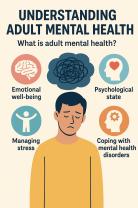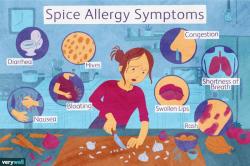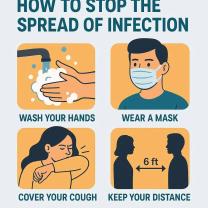Can hypothyroidism cure itself?
Hypothyroidism is a condition where the thyroid gland does not produce enough thyroid hormones to meet the body's needs. The most common cause of hypothyroidism is an autoimmune disorder called Hashimoto's thyroiditis. While there is no known self-cure for hypothyroidism, the condition can be effectively managed and treated with medical interventions.
It's important to understand that hypothyroidism is a chronic condition that usually requires ongoing treatment. The primary treatment for hypothyroidism involves thyroid hormone replacement therapy. This typically involves taking synthetic thyroid hormones, such as levothyroxine, to supplement the insufficient production of thyroid hormones by the thyroid gland.
Some individuals may wonder if lifestyle changes, dietary modifications, or other natural remedies can lead to a self-cure for hypothyroidism. While maintaining a healthy lifestyle, including a balanced diet, regular exercise, and stress management, is important for overall well-being, these measures alone are not considered a cure for hypothyroidism.
Here are key points to consider:
Thyroid Hormone Replacement: The cornerstone of hypothyroidism treatment is thyroid hormone replacement therapy. This medication is usually taken daily to provide the body with the thyroid hormones it needs.
Regular Monitoring: Individuals with hypothyroidism typically need regular monitoring of thyroid hormone levels through blood tests. Adjustments to medication dosage may be made based on these results.
Lifestyle Factors: While lifestyle factors can contribute to overall health, they are not a substitute for medical treatment. It's important for individuals with hypothyroidism to follow their healthcare provider's recommendations and take prescribed medications.
Individual Variability: The response to treatment can vary among individuals. Some may experience improvements in symptoms relatively quickly, while others may take time to find the right dosage of medication for optimal management.
If you suspect you have hypothyroidism or have been diagnosed with the condition, it is crucial to consult with a healthcare professional for proper evaluation and management. Self-cure is not a realistic expectation for hypothyroidism, but with appropriate medical care, the condition can be effectively controlled, allowing individuals to lead healthy and productive lives.
Hypothyroidism and Management Strategies:
1. Resolving Hypothyroidism without Intervention:
Hypothyroidism, primarily caused by an underactive thyroid gland, generally cannot resolve itself completely without intervention. In some rare cases, specific causes like thyroiditis due to viral infection may eventually lead to the thyroid recovering and normalizing hormone production. However, in most cases, ongoing treatment is necessary.
2. Natural Remedies for Managing Hypothyroidism:
While "natural remedies" may be tempting, they are not a substitute for medical treatment for hypothyroidism. Some may offer modest symptom relief, but they cannot replace the essential thyroid hormone your body needs. Additionally, some herbs and supplements can interfere with the effectiveness of your thyroid medication or have other adverse effects. Always consult your doctor before trying any natural remedies.
3. Lifestyle Changes for Symptom Improvement:
Certain lifestyle changes can complement medical treatment and improve overall well-being:
- Healthy diet: Focus on nutritious foods rich in iodine (seaweed, eggs, dairy), selenium (Brazil nuts, tuna), and vitamins A, C, and D. Limit processed foods and soy, which can interfere with thyroid function.
- Regular exercise: Moderate physical activity (walking, swimming) can boost energy levels and mood.
- Stress management: Techniques like yoga or meditation can help manage stress, which can worsen hypothyroidism symptoms.
- Adequate sleep: Aim for 7-8 hours of quality sleep each night to support hormone regulation.
4. Monitoring Hypothyroidism:
Regular monitoring is crucial for managing hypothyroidism effectively:
- Blood tests: Your doctor will measure your thyroid-stimulating hormone (TSH) levels periodically, typically every 6-8 weeks until stabilized, then every 6-12 months thereafter.
- Symptom tracking: Pay attention to and report any changes in your symptoms, like fatigue, weight changes, or mood swings.
5. Medical Intervention Necessity:
Medical intervention is always necessary for hypothyroidism. There is no cure, but treatment with synthetic thyroid hormone medication (levothyroxine) can effectively replace the deficient hormone and manage symptoms. Prompt intervention is crucial, as untreated hypothyroidism can lead to various complications like heart problems, infertility, and depression.
Remember, self-treatment and relying solely on natural remedies for hypothyroidism can be dangerous. Always consult your doctor for a proper diagnosis, treatment plan, and ongoing monitoring to manage your condition effectively and safely.
I hope this information provides a helpful overview of hypothyroidism and its management strategies.













